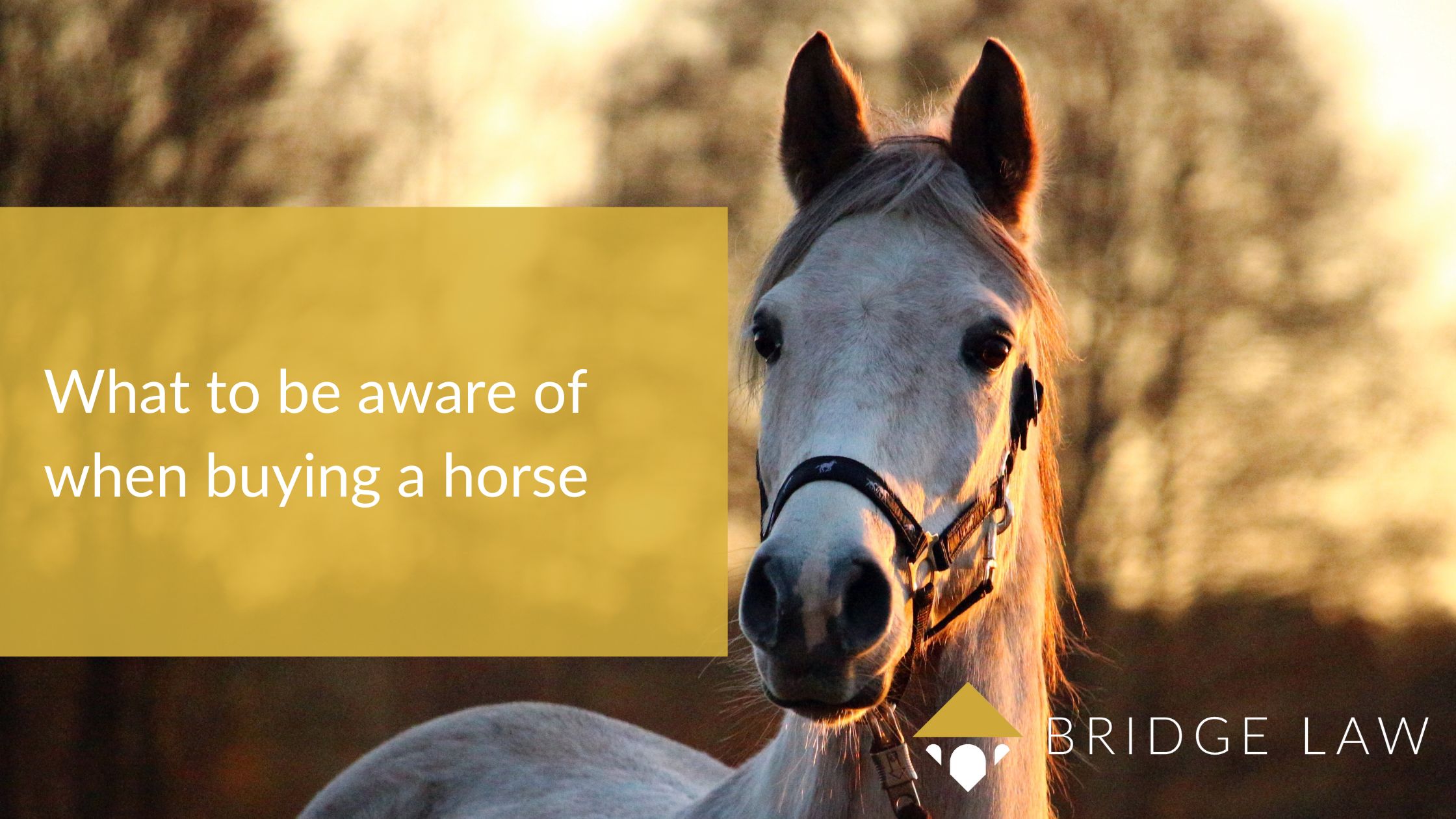What to be aware of when buying a horse

Whether it’s for a hobby or a profession, purchasing a horse is a big investment. When you consider everything associated with owning your own horse – like the initial sale, vets bills, insurance, upkeep and land – the costs are sure to reach the thousands. If there was ever a dispute, this could mean there is a substantial amount at stake, not to mention the time and stress that comes with it.
In this article, our equine law specialists will advise you on some of the things that you should be aware of before purchasing a horse – with a particular focus on sale and purchase agreements – to mitigate the risk of running into any issues of misrepresentation or breach of contract after the sale.
Like all big purchases, going into the sale without thorough knowledge of what the horse is like, its history or all of the right information and documentation, is a big gamble and more often than not, doesn’t pay off. Before signing the dotted line for a horse, there are a few things that you can do to reduce the risks of any problems.
This includes:
- Viewing the horse before purchase – more than once if possible
- If you have little equine experience, going to see the horse with a horse trainer or someone with more experience
- Buying rider insurance to cover you whilst you’re riding the horse at the viewing
- Getting the horse vetted prior to the purchase
After ticking those off, our number one advice is to ask a number of questions to the current owner and find out everything you can about the horse to avoid disappointments or even disputes later down the line.
Some of the things you should consider delving deeper on are:
- The horse’s behaviour
- The horse’s injury and illness history
- The horse’s veterinary history
- How the horse acts in stables
- The horse’s passport
This list is not exhaustive as buying a horse can differ from person to person, depending on the circumstances but it’s advised to ask as much as you can and write all of the answers down. Ask the seller to sign the bottom of the questions and answers – this can be used towards the written purchase agreement/contract and can be crucial if disputes arise.
The checklist and notes will cover you in the event that things are different to the information that you received and that influenced the sale – which will help determine if you have a right to legally dispute the sale.
The sale and purchase agreement
While the legal proceedings vary depending on your personal circumstances, it’s advisable to seek legal advice before making an agreement so that the contract suits both parties needs and is legally binding.
Prior to the purchase, you should sign a sale agreement – otherwise known as the contract. There are a few things that this will need to include:
- Names and addresses of the current owner and the purchaser
- Date of the purchase and the completion of the sale agreement
- The horse’s details
- Price and method of purchase
- Any behavioural problems
- Any illnesses
- When and how the purchaser can return the horse if there is a breach
- The amount of time the purchaser has to complain or return the horse following a breach
If you have purchased a horse – as an individual or a business – and feel that there has been issues of misrepresentation or breaches of contract, speak to our specialist equine law team.
Contact our equine law solicitors on 01484 442 700 (Holmfirth office), 0161 427 0084 (Marple Bridge office) or email info@bridgelawsolicitors.co.uk.
Written by Claire Stewart and Zoe Bancroft


Equine Law, Equine Purchase Agreements, Equine Sale Agreements
